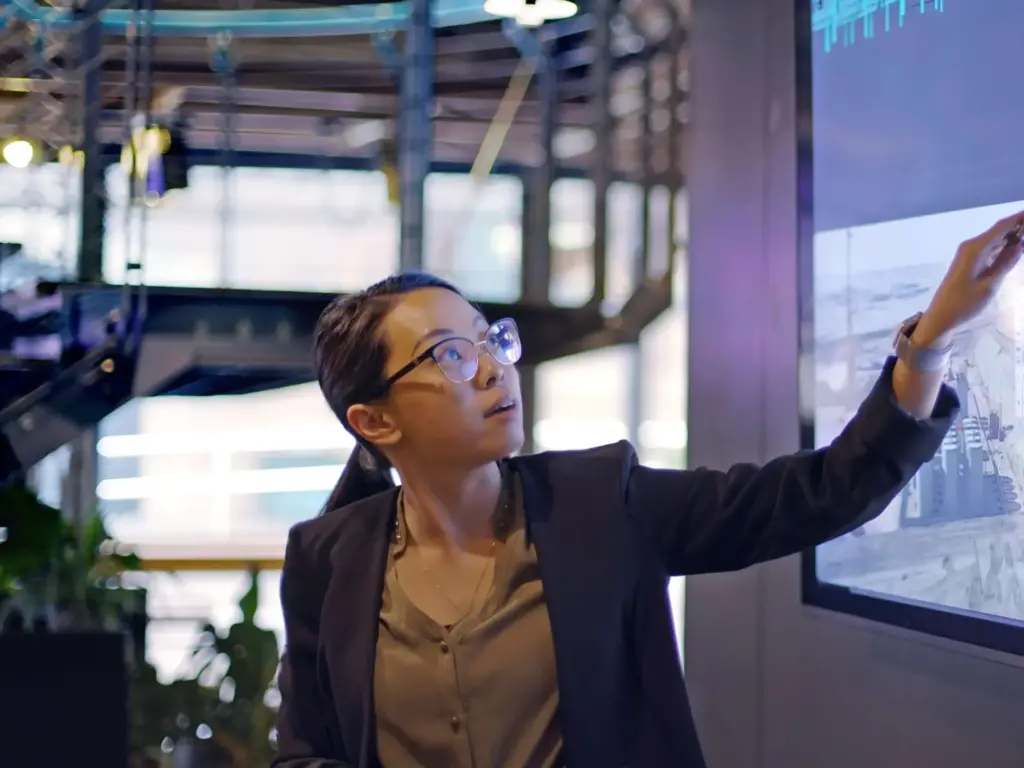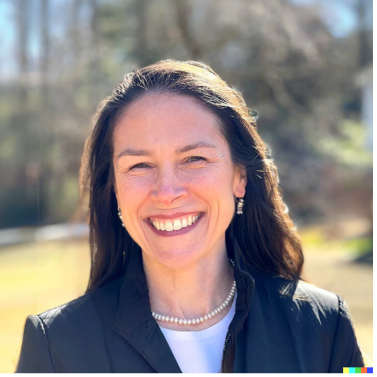
Corporate Net-Zero Targets Project
Summary
Recently, there has been a surge of corporations adopting net-zero and other greenhouse gas emissions reduction targets. Despite this momentum toward corporate net-zero targets, there is a lack of information and analysis about whether these corporate goals result in real emissions reductions. Given the importance of reducing corporate emissions to achieving U.S. climate goals, we need to better understand how these pledges work and design strategies to ensure they are effective.
This project, led by a cross-disciplinary team of experts in environmental and administrative law, environmental economics and policy, and sustainable business strategy, supported by the Salata Institute for Climate and Sustainability at Harvard, aims to analyze the impact of U.S. companies’ commitments and the implications for U.S. policy. The Cluster’s empirical research entails examining how companies with net-zero targets behave compared to companies without to understand how targets influence firm decision-making; analyzing the environmental effectiveness of corporate commitments, including if and how emissions reductions are achieved; and gaps or failures in implementation. Additionally, the Cluster seeks to understand the legal and business drivers of these commitments, including regulatory and non-regulatory headwinds and tailwinds. The Cluster will assess and identify tools, regulatory requirements, and corporate strategies that strengthen companies’ targets and lead to real emissions reductions.
Research Questions
Evaluating Net-Zero Commitments
We are working to assess the impacts of net-zero targets, including whether and how they shape corporate decision-making and corporate emissions. We are constructing datasets to better understand how targets influence firms’ decision-making, including whether and how greenhouse gas emissions reductions are achieved; whether they are additional to what would be required under current laws; whether emission leakage is occurring to other firms; and whether there are gaps or failures in implementation. The empirical analyses will attempt to account for both incomplete emission mitigation policies and incomplete voluntary corporate goal-setting.
Net-Zero Commitment Drivers
We are evaluating the legal and business considerations for net-zero targets to assess what drives corporate commitments that result in real emissions reductions. Corporate net-zero commitments are a response to demand from a range of stakeholders, including regulators, investors, customers, and employees. Understanding the interests and objectives of each is important to identify how regulations could be designed to support effective net-zero implementation. Our research will include comparative analysis across U.S. and international regulatory regimes.
External Engagement
Engaging with stakeholders, policymakers, and students by sharing our findings and learning from practitioners is a key component of this project. We will host convenings throughout the project to collect stakeholder feedback on our research, refine our analysis, and share our findings.
We welcome the opportunity to engage with stakeholders working on net-zero and other corporate climate commitments. To connect with us, please contact Abby Husselbee at ahusselbee@law.harvard.edu.
Related Work by Net-Zero Collaborators
Climate Rising Podcast: An Investor’s Perspective on Corporate Climate Action
Paul Bodnar, Director of Sustainable Finance, Industry, and Diplomacy, Bezos Earth Fund, and former Global Head of Sustainable Investing at BlackRock, joins host Professor Mike Toffel to discuss how investors approach the complex web of weighing climate priorities with fiduciary responsibilities. He also talks about his career in the private, public, and nonprofit sectors and where he thinks the next big climate-related investment priorities will be.
Climate Rising Podcast: Helping Consumers Decarbonize their Purchases
HBS alumna Sanchali Pal, Founder and CEO of Commons, created an app created to help consumers make more climate-friendly purchasing decisions. Sanchali talks to host Professor Mike Toffel about why she chose an entrepreneurial pathway out of business school and what inspired her to focus on the power of consumers to drive corporate climate action. She also talks about building a startup and raising funds and offers advice for those seeking to work in business and climate change.
Climate Rising Podcast: Going Carbon Negative at Microsoft
Microsoft’s former Chief Environmental Officer and current Chief Sustainability Officer & Senior Managing Director at Haveli Investments Lucas Joppa joins host Professor Mike Toffel to discuss the strategies and tools Microsoft developed to meet its ambitious carbon-negative goals, including setting an internal price on carbon, restructuring its corporate governance, and funding innovative climate technology solutions.
New Paper: Behind Schedule: The Corporate Effort to Fulfill Climate Obligations
Professor Joe Aldy coauthored a new Lazard Climate Center paper reviewing the progress of corporate climate reduction commitments and considers the consequences of falling behind in corporate pledges. It finds that 72% of firms from a large U.S. sample are not on track to meet their climate targets and proposes a more robust second generation of pledges.
Climate Rising Podcast: Managing Electricity to Meet Net-Zero Targets
Melissa Lott, Director of Research and Senior Research Scholar, Center on Global Energy Policy at Columbia University, and Michael Webber, Josey Centennial Professor in Energy Resources and Professor of Mechanical Engineering at the University of Texas at Austin, talk to host Professor Mike Toffel about how companies can decarbonize their electricity when pursuing net zero climate goals, from increased efficiency to electrification to generating their carbon-free electricity, and the pros and cons of these pathways.
Climate Rising Podcast: How Science-Based Targets Work
Alberto Carrillo Pineda, Co-Founder and Chief Technical Officer of the Science Based Targets Initiative explains to host Professor Mike Toffel how they help companies and financial institutions design verifiable and achievable climate targets, and how they assess and validate those targets. He also discusses how the SBTi is transitioning from focusing on technical assistance and assessments to a standard-setting organization.
Climate Rising Podcast: Beyond Net-Zero: How Seventh Generation Plans to Achieve Real-Zero Carbon
In this first episode in a new series from Climate Rising on companies setting and meeting net-zero climate targets, Ashley Orgain, Chief Impact Officer at Seventh Generation, joins host Professor Mike Toffel to discuss how the home care products company decided to set a real zero climate goal instead of net-zero, and how they plan to achieve it. She also describes how Seventh Generation is going beyond a carbon footprint to measure its carbon fingerprints that touch every aspect of its business, from banking to creative services.
Show and Tell: An Analysis of Corporate Climate Messaging and its Financial Impacts
Professor Joe Aldy coauthored a new Lazard Climate Center paper assessing the financial impacts of corporate climate messaging. The paper analyzes trends in and financial implications of corporate climate messaging, including disclosure, climate commitments, and soft information from earnings calls. It finds that corporate climate messaging rose from 2011 to 2020 and that firms are behind in their commitments to reduce emissions.
Investing in the Climate Transition at Neuberger Berman
Professor George Serafeim co-authored a new case analyzing asset manager Neuberger Berman’s (NB) climate transition approach. In response to customer demand for investment products that integrated climate risks and opportunities, NB launched the Net Zero Alignment Indicator and offered several investment products. NB’s approach includes investing in carbon-intensive industries, including energy. The case poses strategic questions related to NB’s approach to the climate transition and its future investments in China.
The Implementation and Legal Risks of California’s New Climate Disclosure Laws
In the fall of 2023, California passed two laws that require public and private companies that meet monetary thresholds to disclose their greenhouse gas emissions and their climate-related financial risks. The legislature also passed a related third law requiring companies to disclose their voluntary carbon offsets and provide evidence supporting their net-zero emissions claims. Abby Husselbee, staff attorney at the Environmental & Energy Law Program at Harvard Law School, wrote a paper explaining what California’s three laws require as well as implementation questions and litigation risks.
Toward Decision-Useful Carbon Information
Harvard Business School Climate Fellow Gunther Glenk authored a working paper introducing a taxonomy for assuring the quality of corporate carbon information. Professor Glenk highlights the need to revise the GHG Protocol, as well as recently proposed carbon disclosure mandates that seek to produce “decision-useful” information but have also adopted the GHG Protocol.
What Every Leader Needs to Know About Carbon Credits
Professor Mike Toffel and Varsha Ramesh Walsh wrote a Harvard Business Review primer for leaders to learn about the carbon credit market. They outline qualities of a high-quality carbon market and answer questions about high-quality carbon credits and credit market players, standards, and regulations.

Jody Freeman

Carrie Jenks

Joseph Aldy

Michael Toffel

George Serafeim
Highlighted News

MORE NEWS

Litigation Updates on California’s New Climate Disclosure Laws
start your Research Initiative
With the Salata Institute for Climate and Sustainability, Harvard University is mobilizing to meet the global climate challenge.